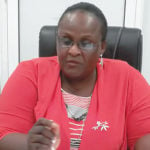In the light of recent high-profile infractions in the market, what regulatory and enforcement frameworks have been put in place by the Institute as a Self Regulatory Organization (SRO) to checkmate abuses and ensure professional integrity?
We have our disciplinary processes that ensure proper handling of erring members through fair hearing. These complement what is obtainable on the different platforms across the capital market space. All of us have zero tolerance for infractions because we are obligated to ensure investor confidence.
How do you see the regulatory structure at the capital market, especially with the recent happenings at the Securities and Exchange Commission (SEC)?
In my personal opinion, Government should reduce too much involvement in the affairs of our capital market regulators for enhanced independence of these institutions. This will enable our regulators to play larger roles expected of them in the entire capital market space.
What can be done to encourage companies to list on the stock market?
We must accord priority to investor education with emphasis on the benefits of listing companies on the stock market. Investors must be educated on liquidity generation and risk-return trade-off. Also, there is a need to review listing fees across all platforms to make our stock market attractive and competitive. We must continually create healthy competition among our listed companies through innovative criteria such as corporate governance and shareholder value among others. These will engender the listed companies in the valley of indecision to brace up for outstanding performance. When the existing quoted companies are operating online optimally and meeting the expectation of their shareholders; at least at the minimum, they will serve as beacons of hope to potential companies who shall take advantage of the benefits of listing to seek quotation on the stock market.
What strategy is being put in place by the market operators to woo back investors into the market?
It is a multi-faceted approach: first, the investors must be educated that our market has recovered and that current price swings are normal. The Nigerian Stock Exchange (NSE) must fashion out a policy that encourages the licensing of more stockbroking firms to operate in the remote states and towns. Corporate governance at all levels must be significantly enhanced. Government also has a role to play in providing liquidity to stabilise the market. Finally, efforts should be stepped up to revitalise the primary market and promote new listings of local and foreign firms.
How can we encourage foreign investors?
We need to encourage foreign investors through legislations that will enhance confidence in our environment. For instance, our laws on the sanctity of contracts must be enforced, we need improved security network and workable fiscal and monetary policies in order to provide the much-needed enabling environment for local and foreign investors at individual and corporate level.
With many rules and codes, is there any fear of over-regulation in Nigeria’s Capital Market?
Rules and Regulators are meant to guide human conduct. We need those rules as the market continues to evolve. We cannot operate optimally in the global space without strengthening our regulations. These rules are designed to protect investor and uphold market integrity in the final analysis.
What is your opinion on the recent uproar on debt level and financing?
It is the sure way to go. We must appreciate that the Federal Government has been able to bring down considerably the cost of local borrowings. This is good for the economy. We expect the Government to take advantage of the capital market to finance infrastructure projects. It had been done in the past and such opportunities always abound in the capital market. The market has potential to provide funds for long term projects.
What is your advice to the investing public?
The public should be assured that the Nigerian capital market has fully recovered and is on the path of surpassing our previous high points. Domestic investors should, therefore, take advantage of emerging opportunities. However, investors need quality advice from qualified professional. The investing public should work with reputable stockbrokers. For the teeming young Nigerians who wish to become finance and investment professional, the time to take action is now. CIS certifications will open doors of opportunity to you, as they are some of the most attractive in the country, especially now that activities in the capital market are booming once more.
At 25, what is the institute’s major request from the administration of President Mohammed Buhari?
Some of the issues we would want the administration to give priority attention to include: Finance of major infrastructure projects, through the capital market, thereby moving from a largely bank-based to a capital market to based financing model. Government must support capacity building initiatives by funding appropriate professional groups such as CIS to carry out the task.
It must precede a buffer stabilization funding arrangement for the capital market. This can be done through AMCON, for instance. Government should put in place policies aimed at channelling more savings and investment in the capital market. For instance, the government should encourage Pension Funds, through PENCOM, to invest more in the stock market, provide appropriate incentives and legislation for companies to list; especially those in the major sectors of the economy. In formulating economic policies, the potential impact on the capital market should be a key consideration.
What informed the Institute’s announcement of Scholarship for the Capital Market Correspondents ?
The Press is our partner in progress. It is in pursuance of our Institute’s capacity building that the Governing Council endorsed the scholarship. The Nigeria’s Capital market has been on the global map over the years and the role of the financial Press cannot be underestimated. The market is dynamic and there is a need to empower the press by ensuring that they understand the dynamics of the market in order to report the market professionally. This is a symbolic relationship between the corporate world and media.
You have just concluded your tenure as the President of the Chartered Institute and of Stockbrokers (CIS), what are the high points of your achievements? What are the challenges and what would you have done differently? What are your pieces of advice for successor?
We have been able to refocus and reposition the institute greatly.
We have returned the Institute into profitability though there is room for improvement. We got our Council’s approval to confirm Honourary Fellowship for four eminent Nigerians for the first time in the history of the Institute. Some Retired Army Generals are now part of us as stockbrokers under the Honourary Fellowship provision. At 25, the Institute acquired a befitting secretariat at highbrow Ikoyi area of Lagos. This is in spite of our challenging operating environment. We have also commenced the Specialised Professional Certification (SPC) to lessen our rigorous barrier for entry into stockbroking profession. This is in line with global best practices to encourage specialisation.
We have increased awareness through ‘‘Operation Catch them Young’ by partnering with tertiary institutions.,We have recorded significant improvements in members’ participation in the Instiitute’s functions, an indication of renewed confidence. We have, re-launched the Nigerian Stockbroker Magazine. We have held successful national workshops that received Federal Goverment’s nod. With all humility, I can say we have done well. Our successes are also predicated on the support from all stakeholders. It is a collective effort and I have no doubt that my successor will keep the flag flying.
Where do you see Stockbroking in Nigeria in the medium-to-long -term? Relatedly, how will the enlarged scope of CISI Bill impact the capital market?
CIS has built an enviable profile as a force to be reckoned with. Quite a lot of people are showing interest in our affairs. Going forward, we are now on a better pedestal to play our advocacy roles in the economy. The CISI Bill will unite all players and professionals in the entire financial market by putting everyone under the same monitoring radar. This will enhance cooperation and sanity in the market.
What’s your assessment of the outlook for the economy?
The outlook is very bright. All the indices are there for everyone to see. In fact, they are favorable to Nigeria. But there are downside risks, things that must be put in place to unlock the potentials of our economy and, which invariably left undone may hamper our economic growth and development. There is compelling need to depoliticize Policy making and implementation. By implication, we must downplay the act of reading political meanings to everything. We must put professionalism above personal interest. Skill and competencies of every professional must be accorded priority without prejudice to the issue of integrity. These are necessary variables that can drive economic growth and development. When we get the basics right, it permeates all levels of decision making.






